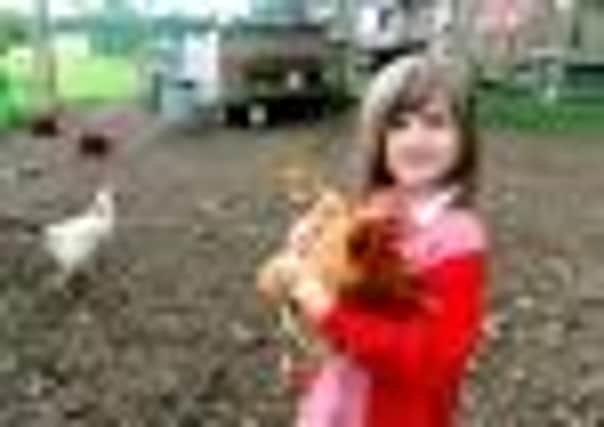Environment Awards: Young People’s Award Winner: Deighton Gates Primary School, Wetherby


Strutting chickens cluck happily in their pens. Neat rows of vegetables flourish along the borders. Some 13 types of apple grow in a picturesque orchard. Wild flowers and brambles prosper in unkempt “wilderness areas”. Frogs and newts swim lazily through the newly-dug pond.
Nothing could better illustrate the environmental ethos which runs through the heart of everything the school does.
Advertisement
Hide AdAdvertisement
Hide Ad“We’ve got so many different green things going on at once,” said class teacher Phillipa Bromley, who leads on environmental matters.
“We’ve got a very good staff structure here which means we are able to provide such a range of extra-curricular options and activities which allows a lot of this to happen.”
While many primary schools are making efforts both to operate in a more environmentally-friendly way and to encourage green thinking in the minds of their pupils, what marks Deighton Gates out from the crowd is the powerful ethos drawn up by staff which encompasses its extensive eco-activities.
“Reduce, Re-use, Recycle, Reproduce, Re-establish, Rewards” is the mantra which teachers use to ensure everything at the school is undertaken in an environmentally-friendly way. Judges were sufficiently impressed to hand the school the Young People’s Award, which is sponsored by Asda.
Advertisement
Hide AdAdvertisement
Hide Ad“Reduce” sees teams of specially-designated “eco-warrior” pupils moving through the school switching off lights and computers when not in use and turning down thermostats. At the same time paper communications have all but been eliminated, while walking and cycling to school are encouraged in a variety of imaginative ways.
“Re-use” involves reworking everything from scrap paper – made into jotters – to old pallets, tyres, pipes and branches which are used to make habitats for mini-beasts and small mammals. Paper, cardboard, stamps, batteries and clothes are all recycled.
“Reproduce” is one of the school’s strongest strands – pupils learn how to grow fruit and vegetables and keep hens in after-schools gardening clubs, with all the produce used in the school canteen, at after-school cooking clubs or sold to staff and parents.
“Re-establish” has seen pupils and staff work together to redevelop the grounds into a variety of ecological habitats including a beautiful new pond, encouraging frogs, newts and other aquatic creatures, and a “wild” area for wild plants and flowers.
Advertisement
Hide AdAdvertisement
Hide Ad“Rewards” ensures staff and pupils alike are fully aware of all the benefits from living a green lifestyle. The school has reduced its own running costs while at the same time giving the next generation a greater understanding of environmental issues.
“The kids do love it,” Mrs Bromley said. “Something like having the chickens and collecting the eggs can be used in a cross-curricular way so that it gels with the various strands of their work and makes everything, whether its literacy, numeracy or whatever, so much more fun for everyone.”